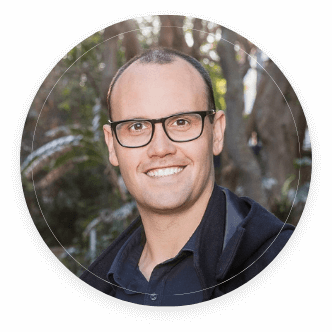Julie’s Background and Entry into the Dental Industry
Julie’s journey into the dental industry was far from conventional.
At the age of 17, she found herself at a crossroads after being kicked out of school for truancy.
With her father’s upcoming return from an overseas trip looming, Julie had a mere two weeks to secure employment or face the consequences.
Undeterred, she embarked on a relentless pursuit, making phone call after phone call to every dental practice she could find until finally, after a staggering 30 attempts, she landed an interview that would mark the beginning of her dental career.
Progression Through Various Roles in Dental Surgery
What started as a necessity quickly blossomed into a passion.
Julie fell in love with the dynamic environment of dental practices, working alongside teams and interacting with patients.
Over time, she progressed through various roles within dental surgery, from dental assisting to reception and patient coordination, gaining invaluable experience and honing her skills.
Julie’s unconventional entry into the dental world was a testament to her determination and resilience.
Despite being an early school leaver, she refused to let that define her path.
Instead, she embraced the opportunities, immersing herself in the dental industry and allowing her passion to flourish.
With each role she took on, Julie acquired a deeper understanding of the intricacies of running a successful dental practice, laying the foundation for her future endeavours as a business owner.
The Journey to Owning a Dental Practice
At 33, Julie’s ambitions soared to new heights as she set her sights on an audacious goal: owning her own dental practice.
With unwavering determination and a steadfast belief in the power of visualisation and action, she ventured on a six-month quest to turn her dream into reality.
Each day, she took deliberate actions fueled by her passion and the vivid picture of her desired outcome.
She immersed herself in the mindset of a dental practice owner, envisioning herself driving to her own practice and making decisions as a business owner would.
Drawing inspiration from Neuro-Linguistic Programming (NLP) principles, Julie understood the profound impact of identity on achievement.
She recognised that to attain her goal, she needed to embody the identity of a dental practice owner, aligning her thoughts, beliefs, and actions with that reality.
Rapid realisation of the dream and challenges of running a practice
Remarkably, within that short span of six months, Julie found herself standing in the waiting room of her very own dental practice, a testament to the incredible power of focused intention and relentless pursuit.
However, as the euphoria of realising her dream settled in, a new challenge emerged: running the practice.
Julie vividly recalls the moment of realisation, thinking, “I don’t know what just happened. It happened so quickly. But now I’ve got to run this place.”
The transition from aspiring practice owner to the reality of managing a business was a stark awakening.
Owning a dental practice brought many responsibilities and challenges that Julie had not fully anticipated.
From managing a team and fostering a positive work environment to ensuring profitability and delivering exceptional patient experiences, the demands of business ownership were multifaceted and ever-present.
Yet, Julie embraced this new chapter with the same tenacity and determination that had propelled her towards her goal.
She recognised that the journey of business ownership was a continuous process of learning, adaptation, and personal growth – a path that would test her resilience and push her beyond her comfort zone but ultimately shape her into the leader she aspired to be.
Money, Entrepreneurship, and Business Ownership
Growing up in a traditional Australian household, the emphasis on having a job was deeply ingrained in Julie’s upbringing.
Her father, a firm believer in the value of being useful, instilled in her the importance of contributing to society and not idling away.
Though seemingly strict, this pressure was rooted in a positive mindset – the notion that one must be actively engaged in learning or working to lead a fulfilling life.
Interestingly, Julie’s journey into entrepreneurship was not driven by a pursuit of wealth or financial gain.
In her formative years, money was never a topic of obsession or scarcity within her family.
Despite being part of a lower-middle-class household, where luxuries like television or VCR were acquired later than most, there was never a sense of lack or deprivation.
Instead, they focused on appreciating what they had and not allowing material possessions to define their worth.
When Julie eventually took over an established dental practice, she found herself in a position where money was no longer a constant concern.
The practice was already successful, and she didn’t have to struggle to make ends meet.
This newfound financial stability allowed her to shift her priorities towards creating an exceptional patient experience and fostering an environment where her team could thrive.
Challenges Faced by Dentists in Practice Ownership
One of the most significant challenges dentists face when transitioning into practice ownership is developing and honing their soft skills, particularly in relationship building.
As Julie pointed out, the traditional dental education curriculum often overlooks these crucial aspects, leaving many dentists ill-prepared for the interpersonal demands of running a successful practice.
During her consulting work, Julie frequently encounters dentists who express a desire to have learned earlier how to communicate effectively with their team members and patients.
Fostering strong relationships within the practice is vital, as it directly impacts the overall patient experience and team cohesion.
Dentists entering practice ownership face a delicate balancing act between projecting confidence in their clinical abilities and embracing a continuous learning mindset.
While patients undoubtedly seek out dentists who exude assurance and authority, the ever-evolving nature of the dental field necessitates a willingness to remain a perpetual student.
Julie highlights the potential internal conflict that can arise when dentists, fresh out of university and armed with their hard-earned degrees, feel pressured to portray themselves as having all the answers.
However, true mastery lies in recognising that there is always room for growth and improvement, both in clinical skills and in the realm of practice management.
Embracing Feedback and Vulnerability for Self-Development
The ability to embrace feedback and vulnerability as catalysts for self-development is closely tied to the need for continuous learning.
Julie emphasises the transformative power of asking patients, team members, and even former employees, “How can I be better? How can I communicate more effectively? How can I create a better environment for you?”
By stepping into a space of vulnerability and actively seeking feedback, dentists open themselves up to a fast-tracked path of self-improvement.
It requires a willingness to acknowledge areas for growth and a readiness to receive potentially uncomfortable insights.
But as Julie attests, the joy derived from the rapid progress and personal growth that follows makes the initial discomfort worthwhile.
Embracing feedback and vulnerability fosters personal and professional development and cultivates an environment of trust and open communication within the practice.
When dentists model this behaviour, they pave the way for a culture of continuous improvement, where every team member feels empowered to contribute to the collective growth and success of the practice.
Conclusion
Reflecting on my conversation with Julie, I am struck by the wealth of ideas, insights, and strategies available to those willing to seek them out.
Julie’s journey powerfully reminds us that success in business ownership is not solely dependent on formal education or conventional paths.
In a constantly shifting world, those who remain stagnant risk being left behind.
Embracing a mindset of continuous growth and evolution is not merely a choice; it is necessary for any business owner who aspires to achieve sustainable success and create a lasting legacy.









